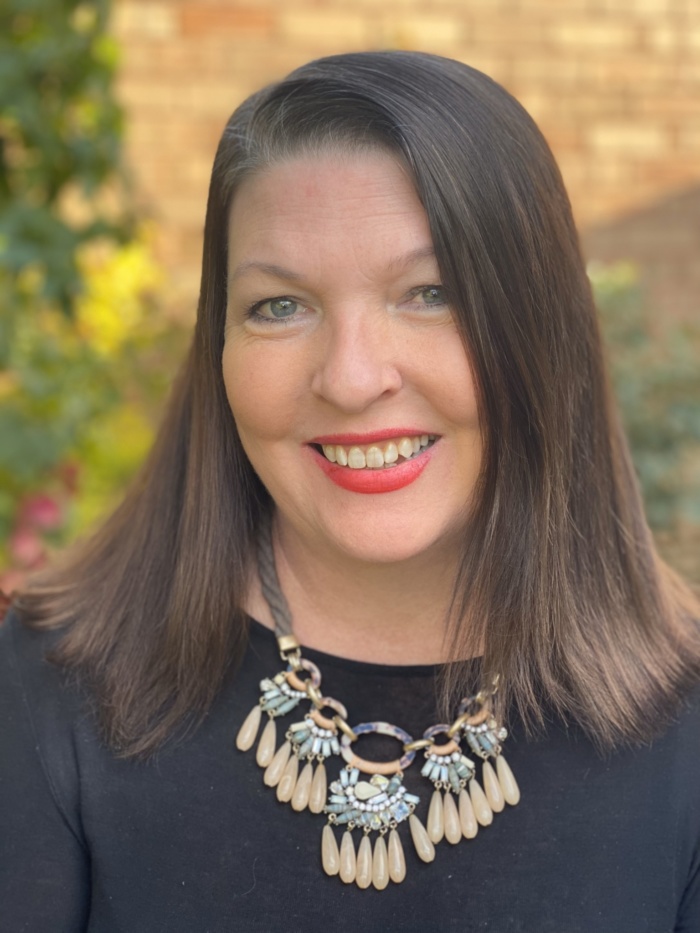Women demand a voice 365 days a year
Posted on 05 Mar 2024
By Greg Thom, journalist, Institute of Community Directors Australia

As Australia prepares to mark International Women’s Day on March 8, Warrior Woman Foundation CEO Jessica Brown says we need a year-round approach to gender issues.
As a high school teacher in a low socio-economic area of south-west Sydney, Jessica Brown saw the benefits that mentoring could provide for vulnerable young women.
It inspired her to establish the not-for-profit female adolescent support service sister2sister, where for 17 years she saw those transformative results firsthand.
“The majority of the young women assisted by the organisation were referred by child protection or juvenile justice,” said Jessica.
“They faced multiple types of marginalisation such as homelessness, intergenerational poverty, unemployment, low educational attainment, early pregnancy, trauma and abuse, alcohol or drug addiction, imprisonment and foster care.”
After seeing so many lives derailed by this litany of social, health and economic problems, Jessica realised the key was to focus on young women who had grown up in out-of-home care.
In 2020, she established the Warrior Woman Foundation, an organisation dedicated to helping woman aged 17-25 achieve independence through financial wellbeing.
The goal is to increase the financial literacy of young women in Australia so that they have the confidence to take charge of earning and managing their own money, plan for future economic security, and protect themselves from financial abuse.

“The foundation has a particular focus on young women leaving the out-of-home-care system on, or before, their 21st birthday - the date at which all government-based support ceases in NSW,” said Jessica.
“The loss of this safety net is compounded for young women with trauma, abuse, low educational attainment, poor mental health, teen pregnancy and alcohol and drug addiction.”
Each year, more than 1500 young women leave care on, or before, their 21st birthday, joining the ranks of the most vulnerable, marginalised, and traumatised groups in Australia.
According to the 2021 Leaving Care Report released by the NSW Office of the Children’s Guardian, within 12 months of leaving care, half of young women end up unemployed, in jail, homeless, a parent or pregnant or a combination of these.
“These young mums are ten times more likely to have their own child removed, adding to their trauma and perpetuating the generational cycle of trauma, abuse, marginalisation and disadvantage,” said Jessica.
According to Jessica, early intervention in this “revolving door” is the key.
The foundation helps bridge the gap between leaving care and making a successful transition to adulthood to ensure that vulnerable young women have the skills, knowledge, and confidence needed to become financially independent.
“Young women leaving care do not have the option of returning home to live with parents when they struggle financially, fail to secure safe housing or need the emotional support that many young Australian women take for granted,” said Jessica.
“Critical to the prevention of unemployment, imprisonment, homelessness and pregnancy is economic empowerment through financial literacy, employment support, peer work and mentoring.”
“Although IWD is very important, we need to have these conversations all year round if we are going to change the social systems that limit the participation of women in the economy, in leadership positions and in high level decision making.”
Loneliness, poor mental health, and sexual violence are among the key areas that must be addressed for many young women in Australia, according to Warrior Women Foundation CEO Jessica Brown.
Loneliness
Australian Institute of Health and Welfare statistics have revealed a quarter of young women aged 15–24 in Australia said they often felt lonely.
“Covid-19 and social media have been identified as key causes of loneliness in young women,” said Jessica.
“Social media has a negative effect on the self-esteem of young women as they compare themselves to the often unrealistic, images of other young women on social networking sites like Facebook and Instagram.”
Cost and availability of mental health care
Jessica said the cost and availability of mental health care in Australia was a significant issue for vulnerable young women who rely on the public health system and cannot afford to pay the gap in fees for GPs, psychologists, and psychiatrists.
“Those living in poverty can develop psychological distress, while those with psychological distress are at higher risk of falling into income poverty.”
Community attitudes
Jessica said the Status of Women Report Card 2023 revealed just how much work needs to be done to change the attitudes of many Australian men towards the opposite sex.
- Compared to the global average (21%), more Australian men (30%) believe that gender inequality doesn't really exist
- More Australian men (28%) believe that women often make up or exaggerate claims of abuse or rape, compared to men from the US (17%), Canada (13%), and the UK (13%)
- Nearly a third (32%) of young men believe that “a lot of the time, women who say they were raped had led the man on and then had regrets”.
A decline in mental health since the pandemic
According to the Jean Hailes National Women’s Health Survey (2023), 46% of all women reported a deterioration of their mental and physical health during the pandemic.
The figure was higher in young women (59%), women with disability (56%) and culturally and linguistically diverse (CALD) women (55%).
Sexual violence
Jessica said the violence prevention organisation Our Watch has reported a mountain of disturbing statistics relating to the extent of sexual violence against women in Australia, including these:
- An estimated one in five women has experienced sexual violence since the age of 15
- More than 50% of women have experienced sexual harassment during their lifetime
- On average, one woman a week is murdered by her current or former partner
- Young women (aged 18–34 years) experience significantly higher rates of physical and sexual violence than women in older age groups
- Women with disability in Australia are twice as likely to have experienced sexual violence since the age of 15 years than women without disabilities
- Women are more likely to experience violence committed by someone they know than by a stranger
International Women’s Day
Jessica described the theme of this year’s International Women’s Day – “Invest in Women: Accelerate Progress” – as particularly timely, because of the persistent gender gap in wages and the disproportionate economic impact of the pandemic on women in Australia.
The recently released Poverty in Australia 2023: Who is affected report from the Australian Council of Social Services (ACOSS) and the University of NSW found poverty in Australia to be “highly gendered.”
“Women have much lower average incomes than men, and during covid received substantially less JobKeeper payments,” said Jessica.
“Coupled with the current high cost of living, women in Australia are faced with a perpetuating cycle of poverty from one generation to the next.”
Jessica said poverty has a serious impact beyond the inability to afford food or accommodation, with poorer women facing a higher risk of sexual harassment and deterioration in mental health.
As the nation prepares to mark International Women’s Day (IWD) on Friday, March 8, Jessica said she has mixed feelings about the event.
“Although IWD is very important, we need to have these conversations all year round if we are going to change the social systems that limit the participation of women in the economy, in leadership positions and in high level decision making,” she said.
Jessica pointed to the Status of Women Report Card 2023 released by the federal government as proof of how much work needs to be done.
“Australia ranked 43rd for gender equality internationally even though we have the fourth highest level of tertiary educated women in the OECD.
“This is a dismal result that shows how far off equality Australia is and how much work needs to be done to ensure a just and equal society.”